Families affected by the 10-year conflict in northeast Syria face high levels of food insecurity. The SAFER program steps in to meet families’ immediate and long-term food needs.
With the cost of food far exceeding the average salary in Syria, nearly 60 percent of the country faces food insecurity. [1] The situation continues to devolve as people lose sources of income to the economic downturn and the ongoing COVID-19 pandemic. Struggling to buy food, many families take loans or sell assets just to be able to afford to eat. As of early 2021, more than 1.3 million Syrians need humanitarian assistance to survive.[2]
Blumont’s USAID-funded Shelter and Food Emergency Response (SAFER) program is responding to the increasing need for household- and community-level food security in northeast Syria. To address this complex situation, SAFER services range from the most acute food-related needs to long-term agricultural solutions, with the goal of restoring food security and improving livelihoods.
Delivering Free-of-Charge Bread
Abdi, age 80, heads a 12-member family, six of whom are living with disabilities. His family’s income comes from selling the milk of his eight sheep, but sales sometimes come up short. In dire situations, they have had to decide whether to sell one of the sheep to purchase food and cover their medical expenses.
The SAFER program stepped in with daily distributions providing bread for the entire family.
“If it wasn’t for the daily bread rations we receive, we would have perished,” said Abdi’s wife. “It really helps us a lot. Before we received bread, I was forced to go alone to Al-Qahtaniyah to bring bread to my children.”
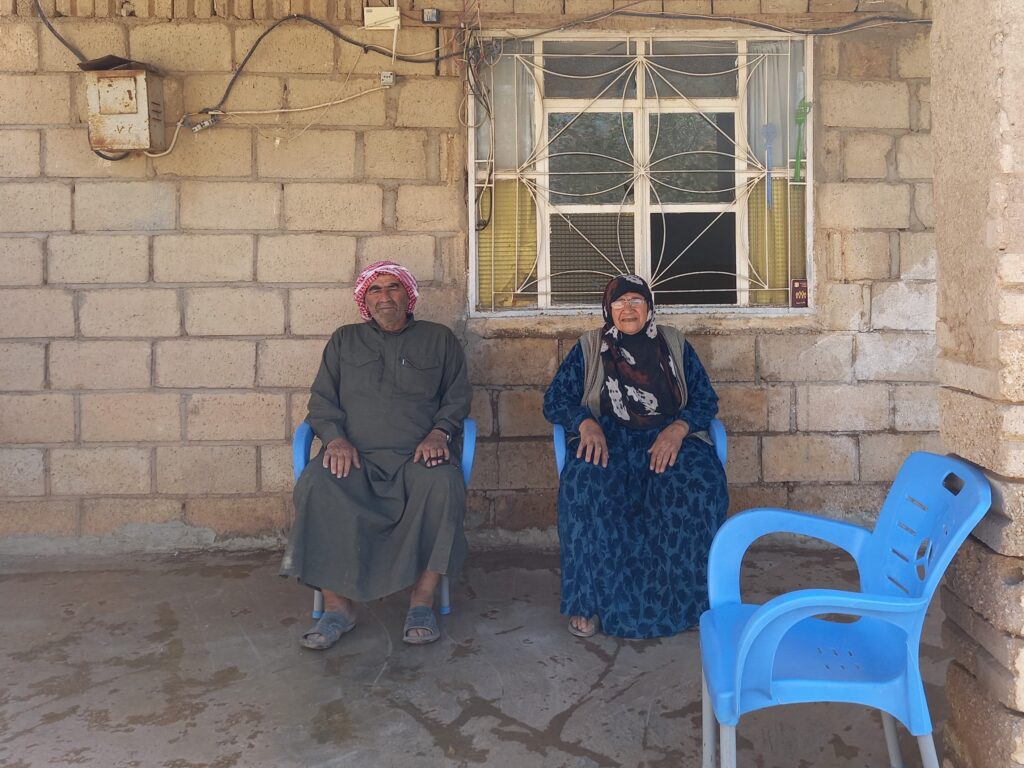
Abdi and his wife sit in front of their home
The money saved on groceries helps Abdi pay medical expenses and buy other essential household items. With bread delivered to their doorstep, Abdi’s wife no longer travels to buy bread for her family – an 18-kilometer trip from her home. Now, she can invest that time and energy into her family.
Alleviating Financial Burdens through Vouchers
Iman is responsible for providing for his parents, wife, and two children, placing him under a heavy financial and emotional burden at just 25 years of age. When his father and daughter both fell ill, his income was insufficient to pay for their surgeries.
“My father sold our television set because we needed the money, so I couldn’t watch cartoons anymore,” Iman’s 5-year-old son said.
With medical costs adding up, Iman and his family were left with a 5 million SYP debt (nearly 4,000 USD). They were forced to borrow money for food and, sometimes, Iman and his wife would skip meals to ensure their children were fed.
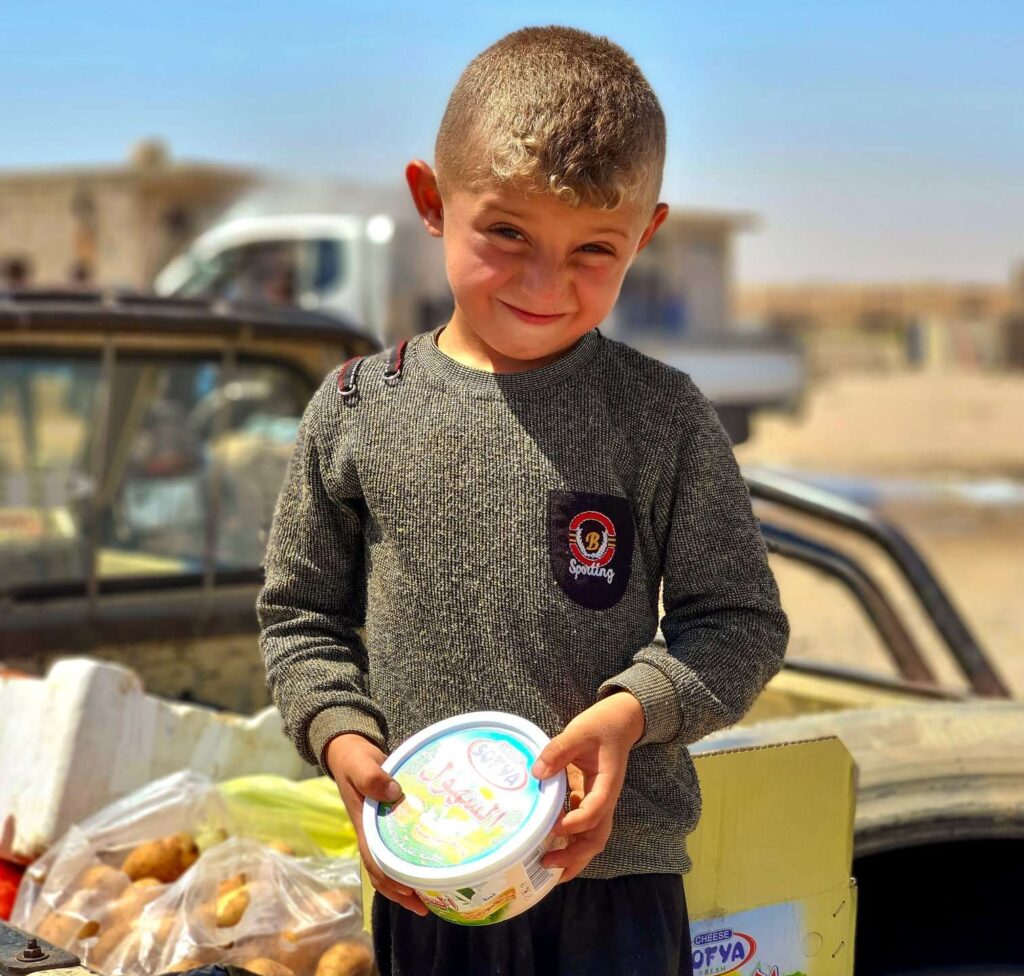
Iman’s son holds food he received through SAFER’s vouchers
Through the SAFER program, Iman and his family now receive monthly vouchers to meet their food needs, allowing them to pay their medical bills.
“We no longer have to borrow money to buy food,” Iman’s wife shared. “Our food is now debt-free.”
Growing Food at Home
While bread and vouchers meet families’ short-term needs, Blumont also invests in long-term food security solutions by providing households with training and supplies to grow their own food.
Khadija, a 40-year-old widow from Ar-Raqqa, is raising four children and, for years, her only source of income was charity from relatives and neighbors. Through training from the SAFER program, Khadija learned to grow fruits and vegetables in her backyard. Home vegetable gardens like hers provide families with accessible, nutritious foods that can be expanded into a source of income.
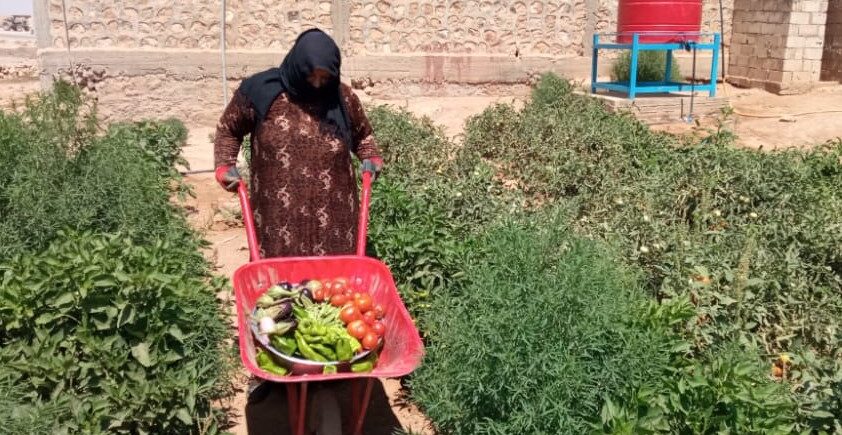
Khadija harvests her home-vegetable garden
Now, Khadija can meet her children’s food needs without outside help. She also prepares any food surplus for the winter season in the form of tomato paste, pickles, and dried vegetables. The garden has even become a source of income, as she sells products in order to buy other household essentials.
Cultivating Family Farms
Prior to the war, agriculture was a major source of livelihoods for families in Syria. Conflict, economic crisis, and water scarcity has led to thousands of farmers losing their source of income. The dry lands also threaten large-scale food insecurity and poverty in the region.
Sadaa, a 53-year-old widow who is the head of an 11-member household, depended on farming to feed her family. Unfortunately, due to the rise in price of seeds and fertilizers, Sadaa could no longer cultivate her land sufficiently.
SAFER helps smallholder farmers in northeast Syria restart their agri-businesses through trainings and distribution of agricultural inputs. With support from SAFER, Sadaa participated in a comprehensive agricultural training and received a toolkit with the equipment and supplies needed to restart her farm.
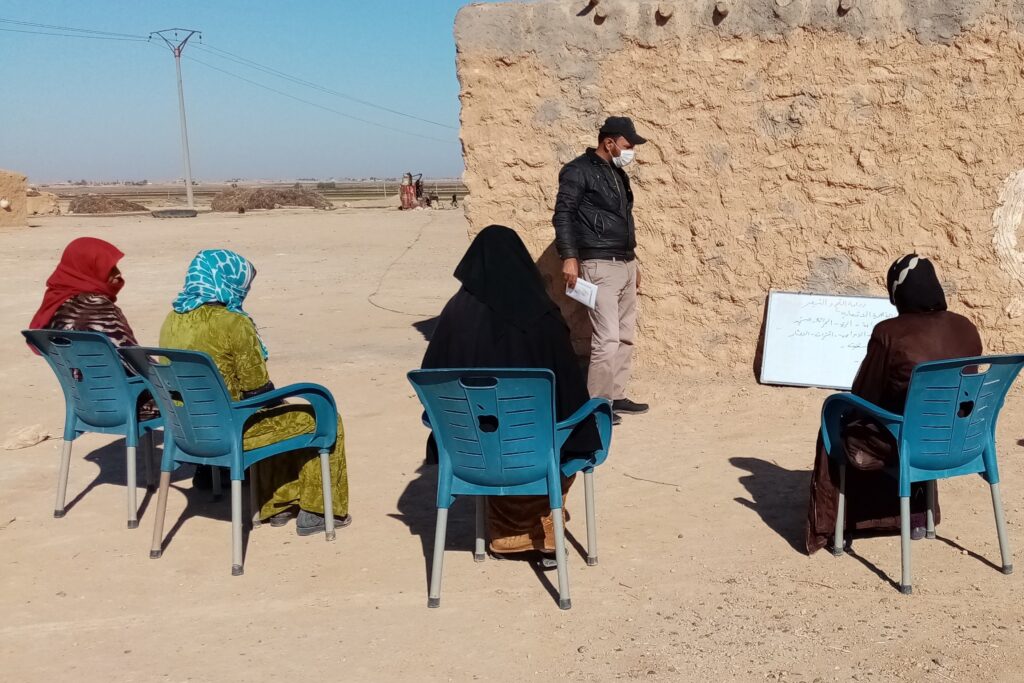
Sadaa attends SAFER’s agricultural training for smallholder farmers
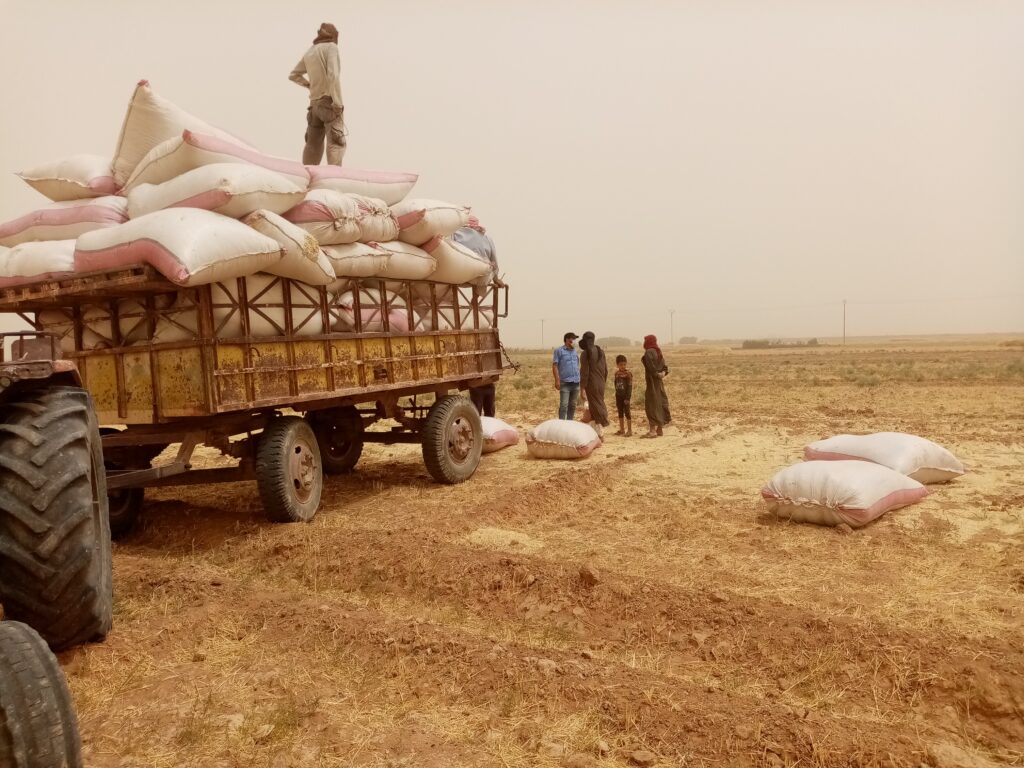
Smallholder farmers harvest their wheat and barley crops
Our team frequently visited Sadaa, providing support and training until she was able to grow enough wheat to bake bread for her family. After harvesting her crops, Sadaa sold her surplus hay and wheat to other livestock owners, which earned her disposable income to buy additional necessities for her family.
[1] World Food Programme, 17 Feb 2021. https://www.wfp.org/news/twelve-million-syrians-now-grip-hunger-worn-down-conflict-and-soaring-food-prices
[2] World Food Programme, 17 Feb 2021. https://www.wfp.org/news/twelve-million-syrians-now-grip-hunger-worn-down-conflict-and-soaring-food-prices



